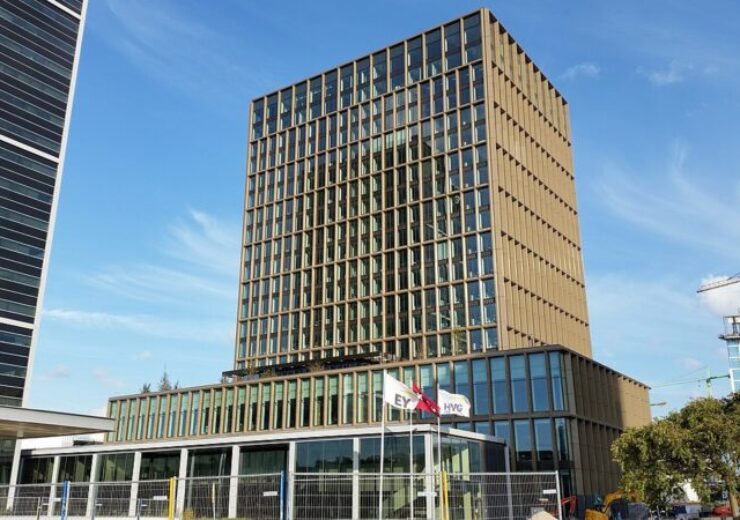The MAA is backed by findings from Cohort 1 of the randomised, controlled, open-label, multicentre Phase 3 THOR trial, which compares the effectiveness and safety of erdafitinib and chemotherapy

EMA headquarters in Amsterdam, Netherlands. (Credit: Ceescamel from Wikimedia Commons)
The Janssen Pharmaceutical Companies of Johnson & Johnson has submitted the Marketing Authorisation Application (MAA) to the European Medicines Agency (EMA) for approval of Erdafitinib (Balversa) to treat certain types of urothelial carcinoma (UC) in adult patients.
Erdafitinib is a once-daily, oral pan-fibroblast growth factor receptor (FGFR) tyrosine kinase inhibitor.
Janssen seeks Erdafitinib approval to treat locally advanced unresectable or metastatic UC, with susceptible FGFR3 genetic alterations, with disease progression during or after at least one therapy line with a programmed death-ligand 1 (PD-[L]1) inhibitor or programmed death receptor-1 (PD-1).
The MAA is backed by findings from Cohort 1 of the randomised, controlled, open-label, multicentre Phase 3 THOR trial, which compares the effectiveness and safety of Erdafitinib and chemotherapy.
The study’s main goal was overall survival (OS), and patients who took Erdafitinib achieved a median OS of more than a year at the predetermined threshold for interim analysis results.
Janssen said that the independent data safety monitoring committee recommended stopping the study.
The committee said that the patients who were randomly assigned to chemotherapy be given the chance to switch to Erdafitinib as the interim results met the predefined criteria for the superiority of treatment with FGFR tyrosine kinase inhibitor over chemotherapy.
In addition, Erdafitinib’s safety profile in THOR matched that of Erdafitinib’s previously published safety profile in metastatic urothelial carcinoma (mUC).
Janssen Research & Development Solid Tumours Clinical Development VP Kiran Patel said: “This submission, and Janssen’s ongoing study of Erdafitinib, reinforces our commitment to deliver much-needed targeted therapies in the areas of high unmet need, including for devastating diseases like metastatic UC.
“Erdafitinib has demonstrated promising results in advanced, FGFR-altered UC, making this submission a vital step towards improving outcomes for patients in the future.
THOR Phase 3 study compared Erdafitinib in two cohorts; Erdafitinib against standard-of-care chemotherapy after at least one line of treatment including an anti-PD-(L)1 agent; and FGFR inhibitor versus pembrolizumab after one prior treatment not containing an anti-PD-(L)1 agent.
Belgian pharmaceutical company has planned a lengthy extension period during which eligible patients will continue to gain from the research intervention once the clinical cutoff date is reached for the final analysis of each cohort.
